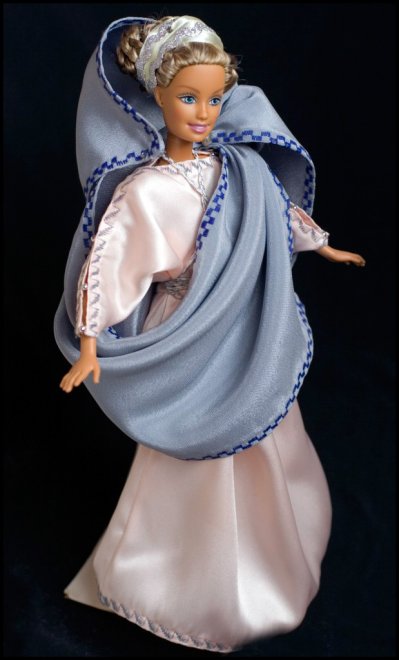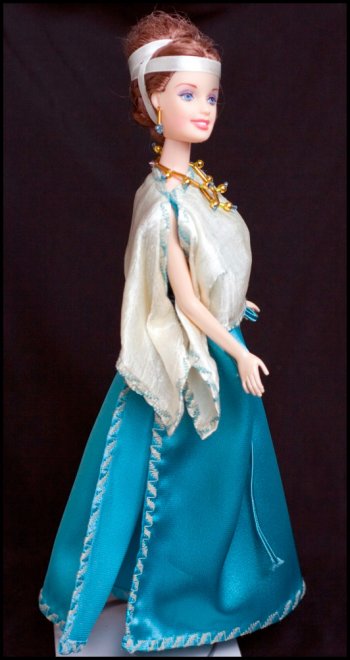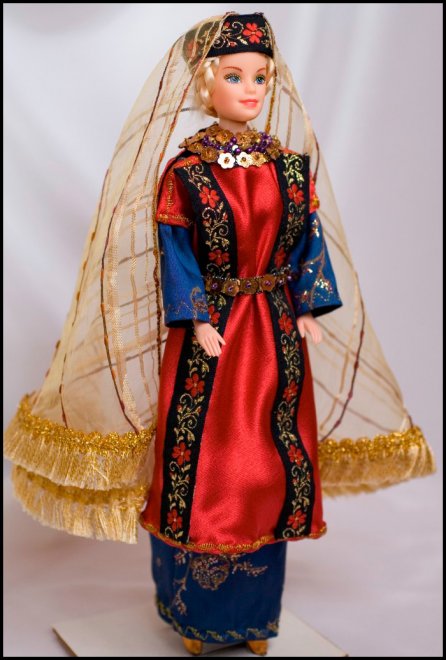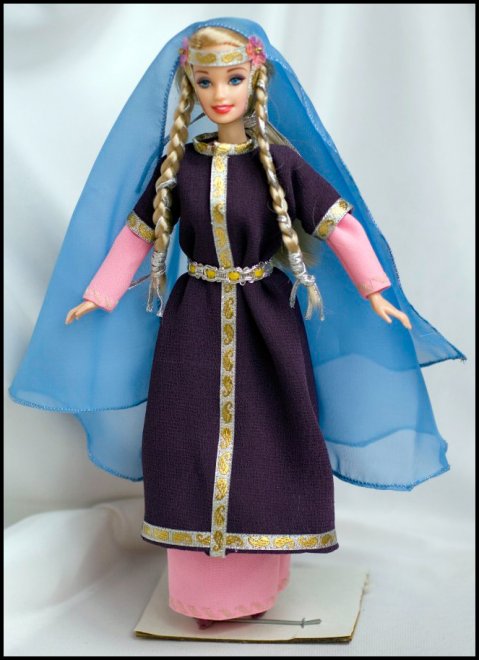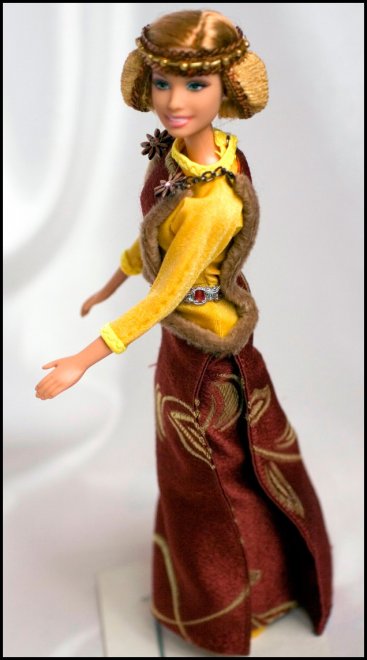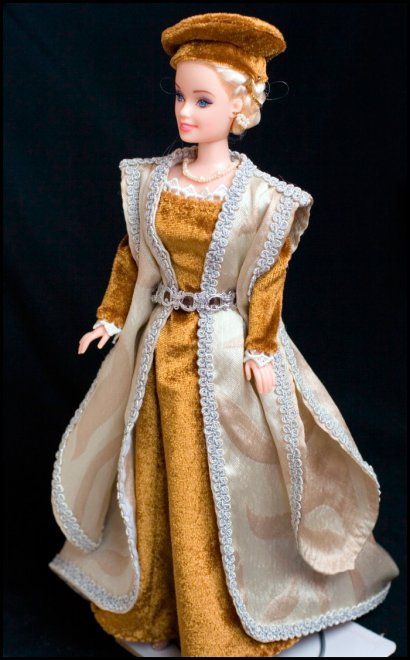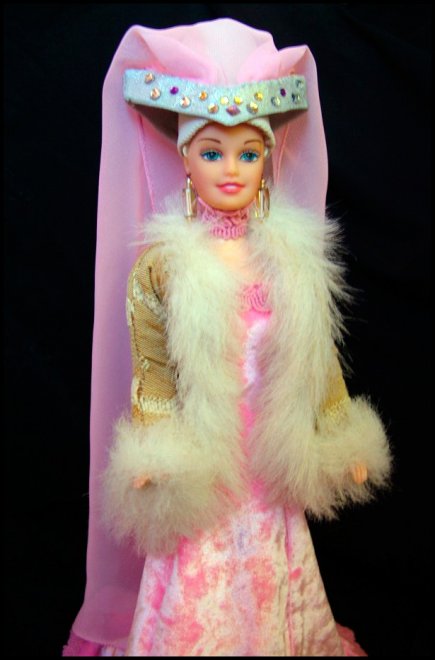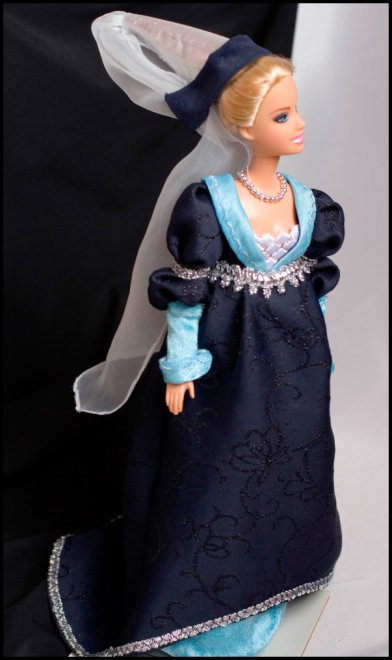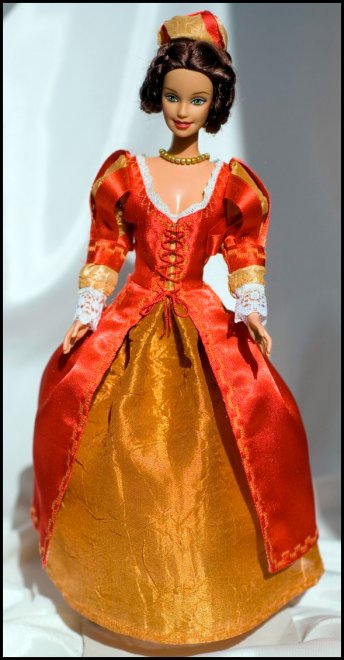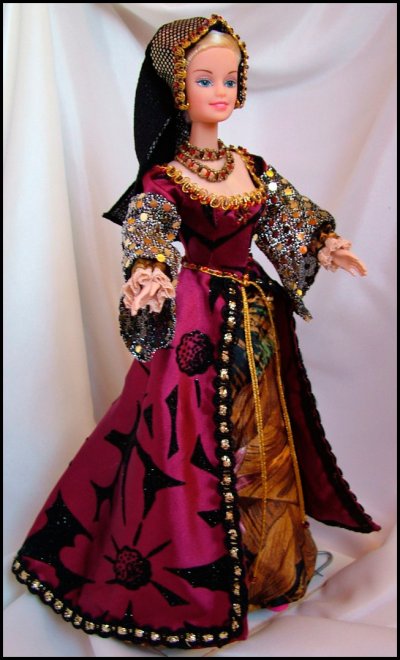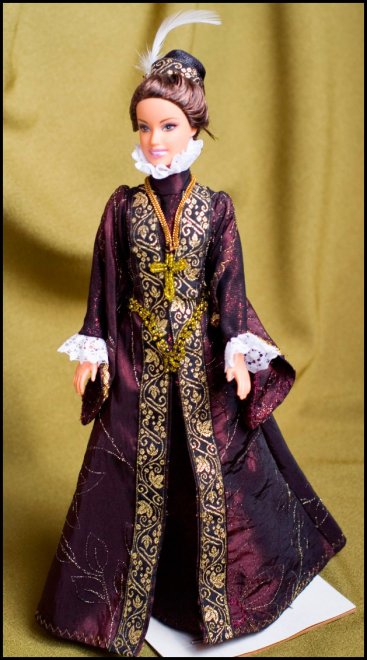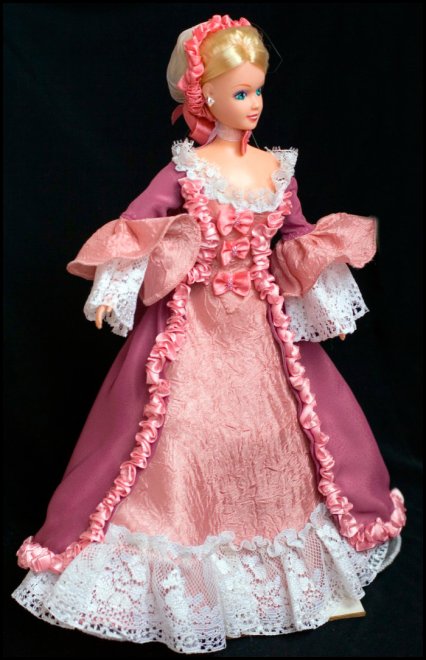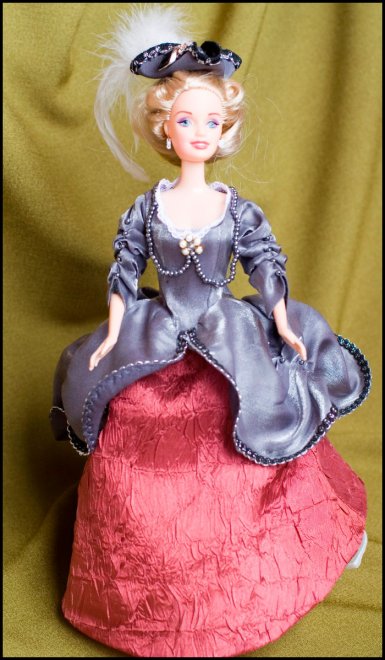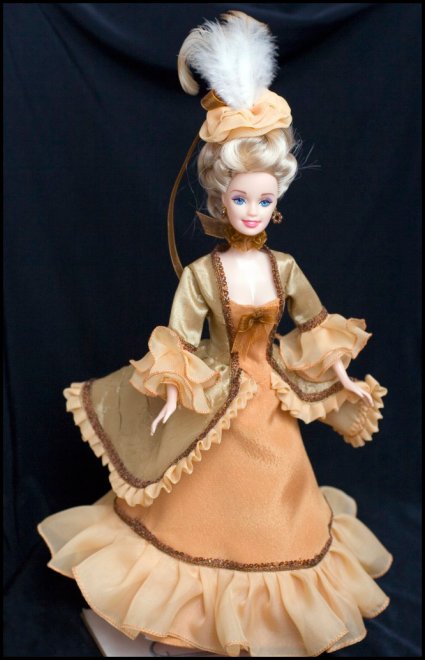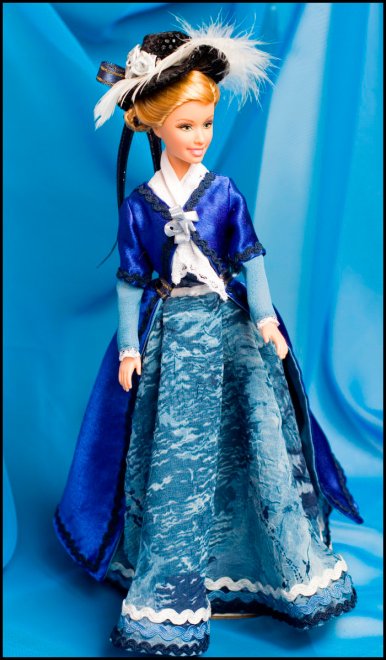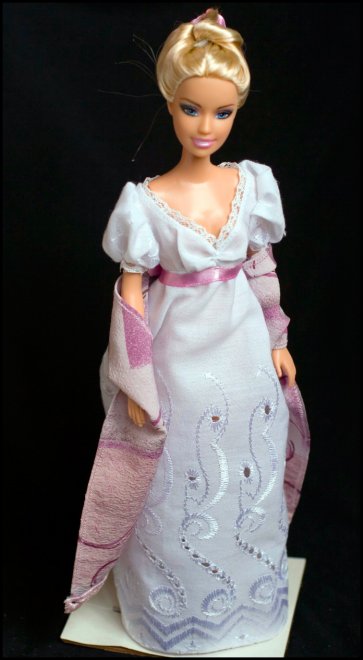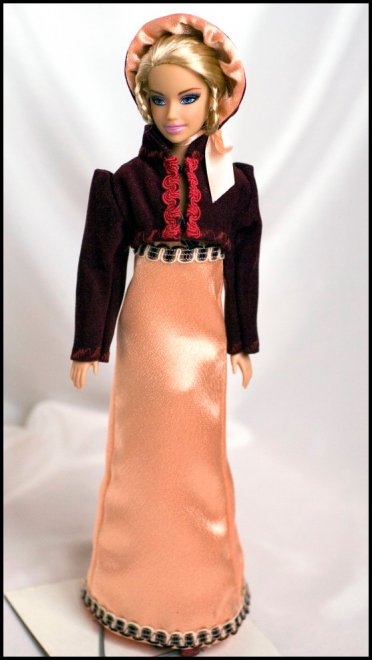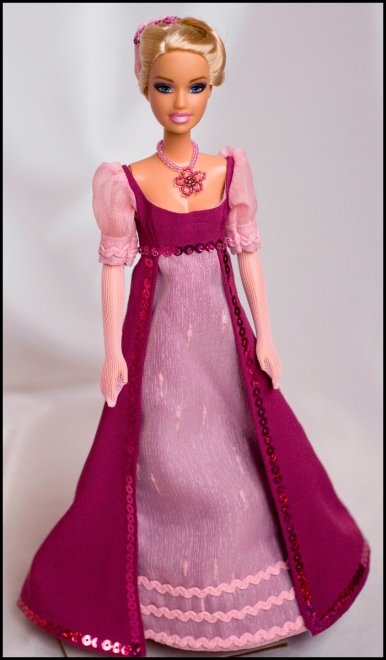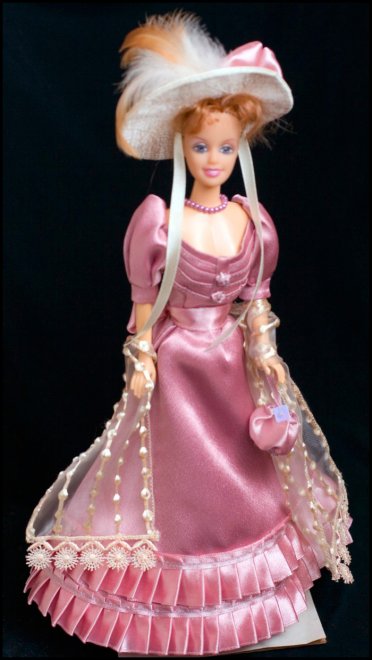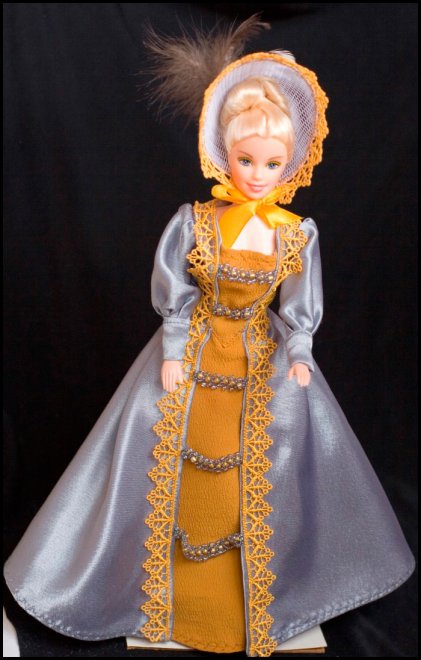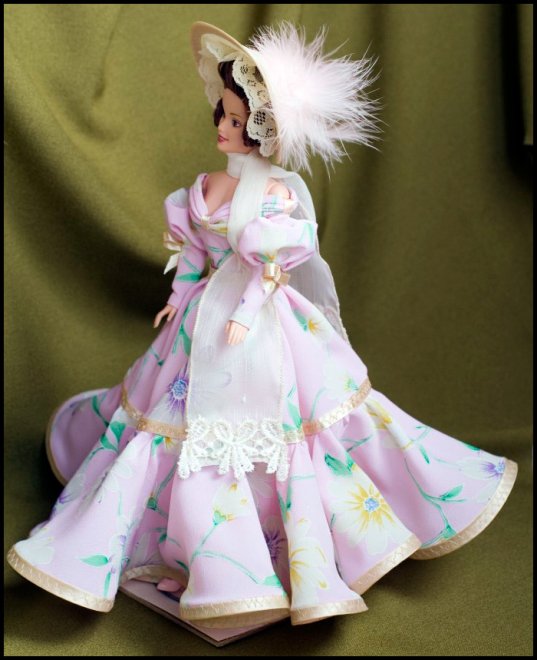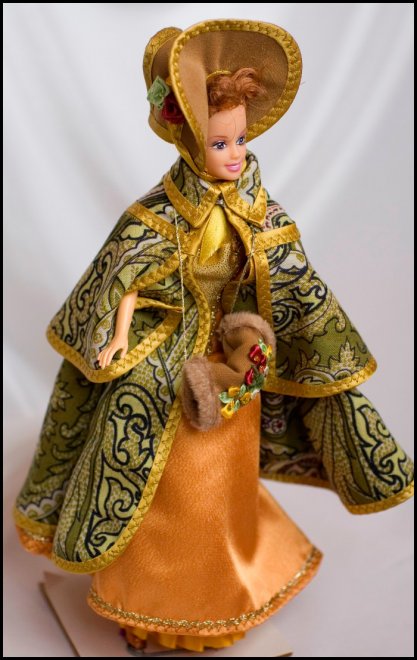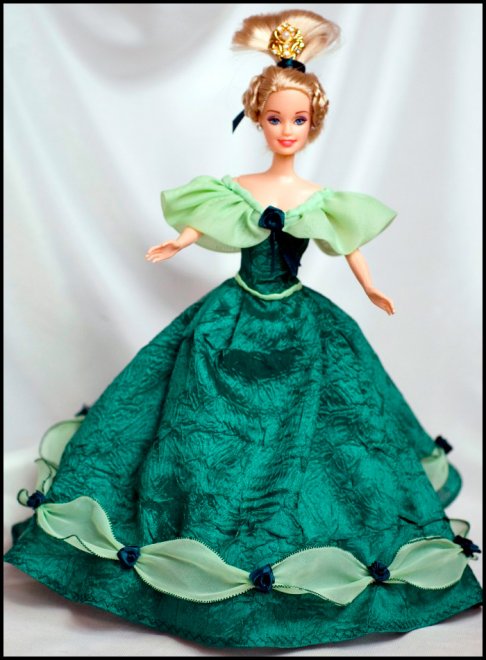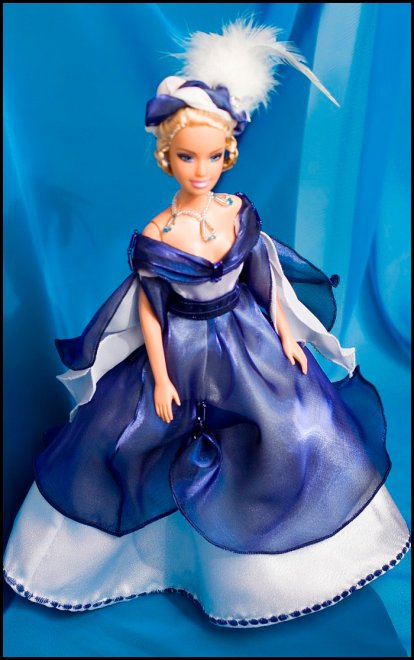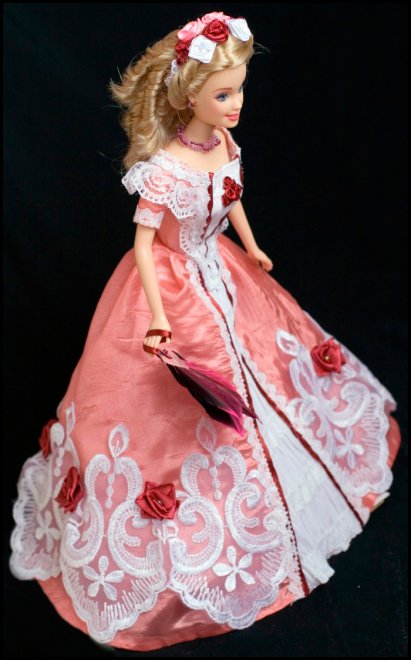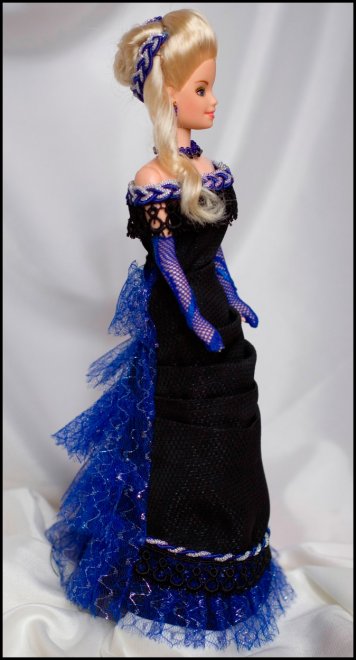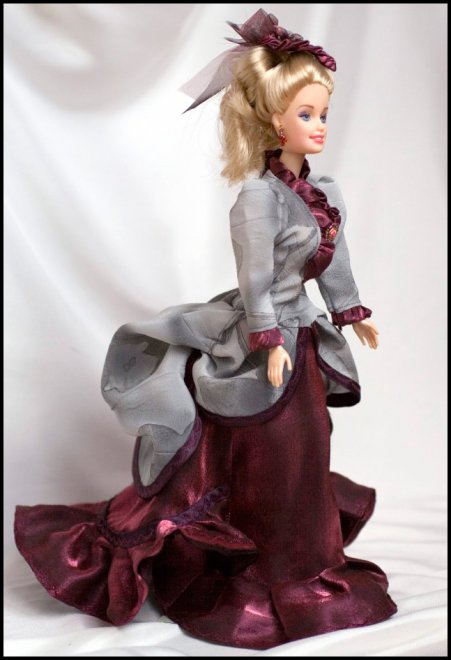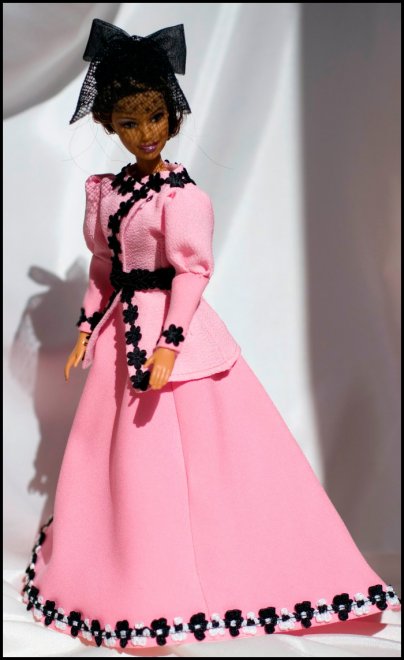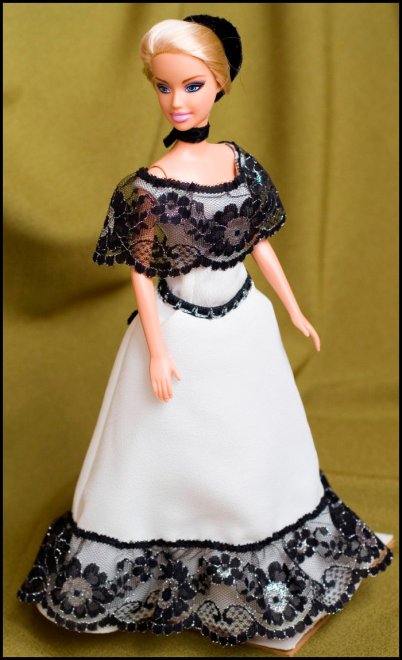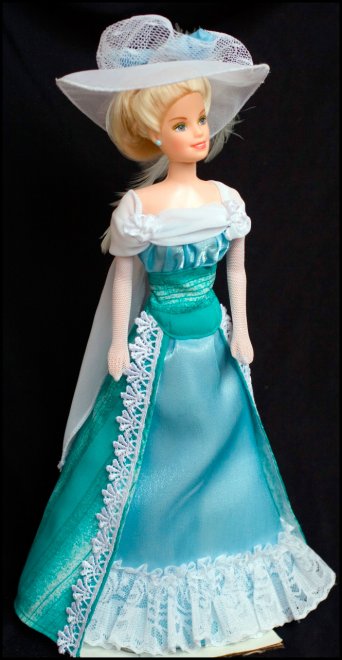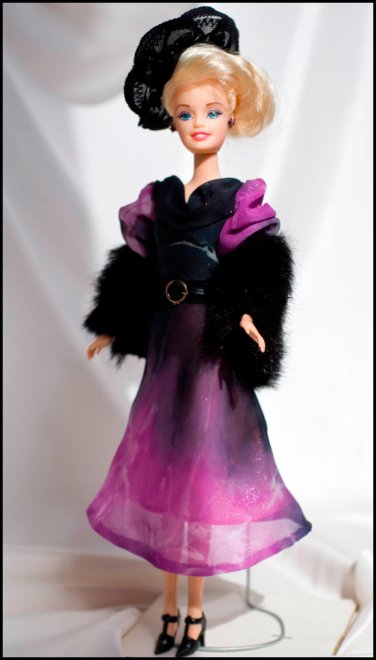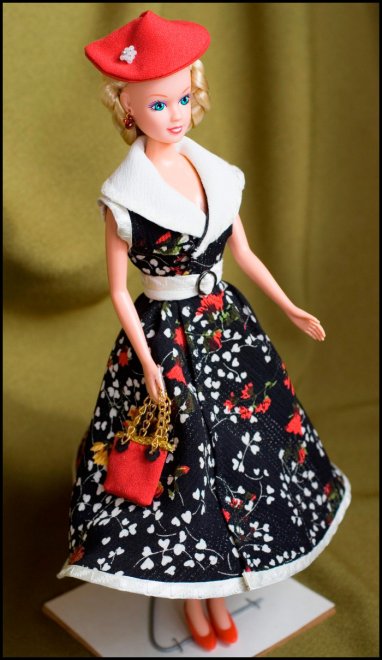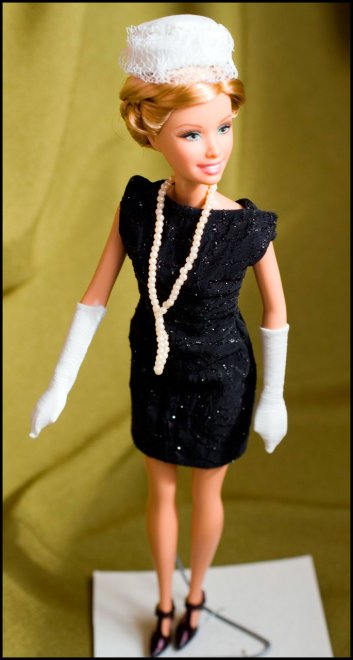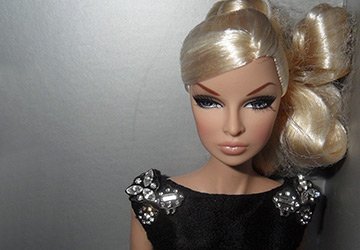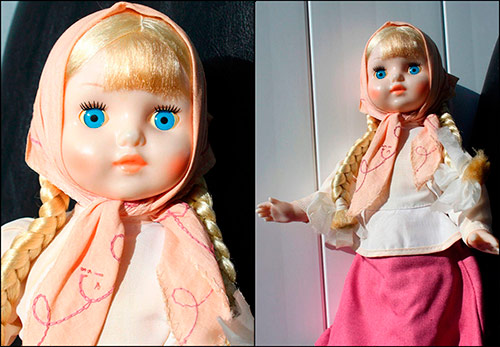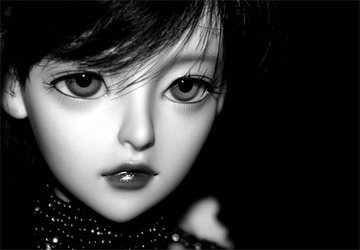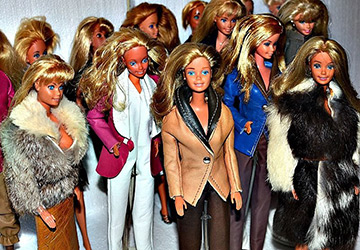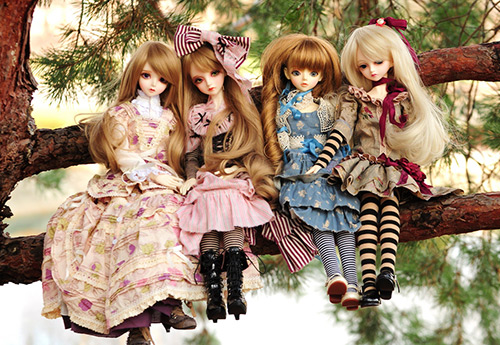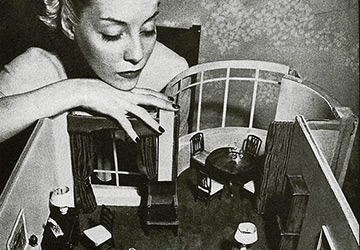Dolls and baby clothes
The history of fashion and costume in clothes for dolls
Many of us have children and we think about what to do, captivate, interest them, so that they, having various hobbies and interests, are protected from a bad society, idle pastime and bad addictions.
Today we will consider one of the hobby options that can keep our girls busy. Sewing a historical costume for dolls can become a chic hobby. Why do I suggest sewing for dolls, and not for myself? I explain with my own example, and examples from the lives of others beauties - starting to sew, embroider, knit, you will not be able to immediately get excellent results. Having knitted a blouse or hat, you see that it is of low quality and you can wear it only at home or in the countryside - a summer cottage. There are a lot of ready-made high-quality clothes around, which are very difficult to surpass in quality.
It will take years of hard work before you start sewing - take quickly and efficiently, getting products that are in no way inferior to ready-made fashionable clothes. Most will not have enough patience, because seeing the modest results of our work, most of us give up and give up what we started. I knitted for several months, knitted a blouse, a scarf and threw it away. Then, a few years later, she again wanted to return to her hobby - to have a thing for her soul. She took it up again with enthusiasm, but after a few months she gave up again.
Any quality results, in any endeavor, require patient daily practice multiplied by time.
What if you want to have a hobby, and do not have titanic patience, while you want to see the fruits of your labor as quickly as possible? There is a way out - to start sheathe your dolls, sew dresses for them, knit, embroider and decorate.
This does not require buying many meters of fabric and thread. Enough scraps of cloth fur, some threads and beads. And to make it interesting and at the same time informative, you can start creating a collection of historical costumes - while studying the history of fashion. Starting from a simple one, you can acquire skills, create a collection, learn a lot of new things, and most importantly, do not give up this business, because the doll is picky, and she will gladly wear a blouse, even with low-quality knitting - the doll is not proud and does not care what her friends say. This means that you do not have to dissolve a knitted sweater 10 times, tying one, you will start doing the second, the third and acquire skills, making each subsequent thing better and better.
For an example, check out this collection - the story of a costume in clothes for Barbie.
Historical costume for Barbie - Ancient Greece 5-4 c. BC
Clothes for dolls - Byzantine period, early Christianity
Early Middle Ages - European costume in the 5-11 centuries.
Costume for Barbie from the era of the Crusades, circa 13-14 century.
Early Renaissance Barbie 15-14
Gothic period - dress from France in the first half of the 15th century.
Gothic period - dress from France in the first half of the 15th century.
Italy, high renaissance late 15th century and early 16th.
England - Renaissance, early 16th century.
Barbie doll in Spanish costume from the second half of the 16th century.
Costume for Barbie early 18th century, France Rococo.
Barbie doll and later Rococo - second half of the 18th century, France.
Another dress for a late Rococo Barbie from late 18th century France.
Barbie doll in clothes 1795-1800, France - classicism.
1804-1810. England - Empire style doll clothes.
1810-1820 France.
Our Barbie in Clothes from France (Romanticism 1820-1830)
Our Barbie in Clothes from France (Romanticism 1820-1830)
Dress for Barbie from France of the second Rococo period 1840-1850.
Dress for Barbie from France of the second Rococo period 1850-1867.
English costume for Barbie 1890-1900
Art Nouveau dress for a Barbie doll 1890-1910
France Modern 1900-1910
Vintage clothes for Barbie 1930-1940
Christian Dior Barbie Dress - New look
Vintage Barbie Clothes 1960-1970
Comments and Reviews
Add a comment
Rating news
Shades of clothing that make women look younger
What shades of hair make women younger: rules and photos
Funny wedding dresses - photos and ideas
12 most expensive down jackets for the winter
How to look 25 at 40: tips from supermodels
Beautiful schoolgirls
Anti-aging haircuts and hairstyles for women
Fashionable skirts for autumn and winter
Fashionable women's trousers for the cold season
Fashionable and stylish sandals for summer 2024
Spring-summer 2024
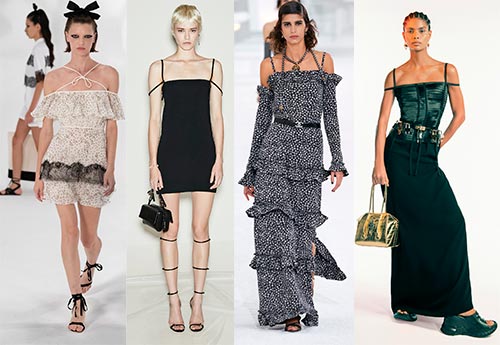 Fashionable dresses and tops with thin spaghetti straps
Fashionable dresses and tops with thin spaghetti straps
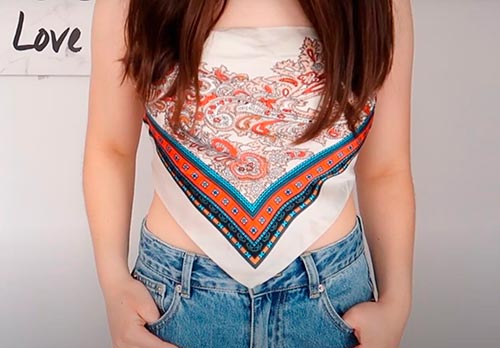 Bandana tops: how to wear stylishly and beautifully
Bandana tops: how to wear stylishly and beautifully
 How to put together the perfect men's wardrobe for the summer
How to put together the perfect men's wardrobe for the summer
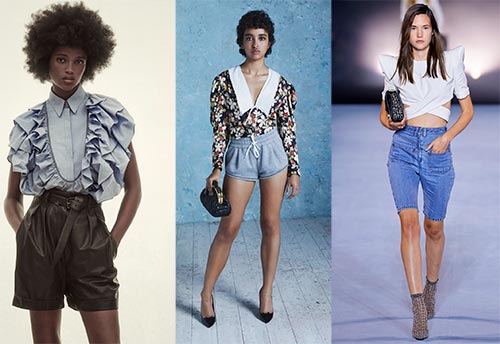 Trendy shorts for spring-summer 2024
Trendy shorts for spring-summer 2024
 Fashionable skirts for spring-summer 2024: a guide to online shopping
Fashionable skirts for spring-summer 2024: a guide to online shopping
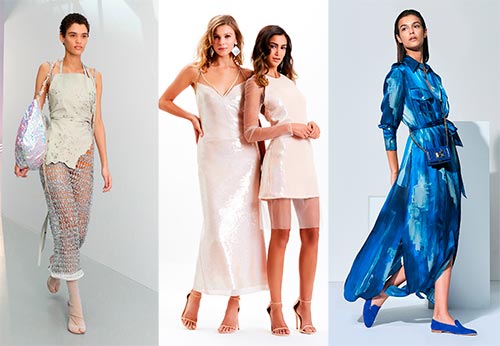 The most fashionable dresses spring-summer 2024: styles and colors
The most fashionable dresses spring-summer 2024: styles and colors
 Fashionable total look 2024: image ideas and trends
Fashionable total look 2024: image ideas and trends
